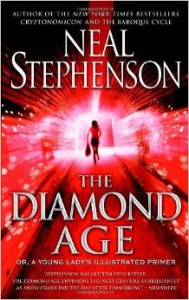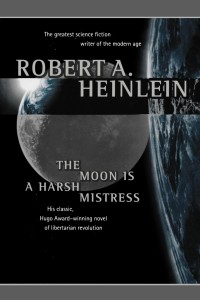
I had an idea for a story. It came to me one day after hearing about another murderous police officer being acquitted in my hometown of Baltimore. I asked myself what would happen if a perfectly just AI governed us instead of a corrupt state. A computer cannot be bribed. A computer would not acquit those who were guilty of murder.
 The basic premise of the story went like this: sometime in the future, war, poverty, injustice, and ecological devastation continue to erode civilisation to such an extent that governments agree to hand over control to a supercomputer AI. But unlike most dystopian stories, this AI does not try to destroy humanity but save it. It is a benevolent dictator, if you will, that is programmed to be impartial according to a constitution. So, knowing that there is nothing new under the sun, I went in search of novels with similar premises, i.e., novels that portray AI in ways that benefit society. I found and read two: Neal Stephenson’s postcyberpunk novel The Diamond Age: Or, A Young Lady’s Illustrated Primer and Robert Heinlein’s 1966 classic The Moon is a Harsh Mistress.
The basic premise of the story went like this: sometime in the future, war, poverty, injustice, and ecological devastation continue to erode civilisation to such an extent that governments agree to hand over control to a supercomputer AI. But unlike most dystopian stories, this AI does not try to destroy humanity but save it. It is a benevolent dictator, if you will, that is programmed to be impartial according to a constitution. So, knowing that there is nothing new under the sun, I went in search of novels with similar premises, i.e., novels that portray AI in ways that benefit society. I found and read two: Neal Stephenson’s postcyberpunk novel The Diamond Age: Or, A Young Lady’s Illustrated Primer and Robert Heinlein’s 1966 classic The Moon is a Harsh Mistress.
So, now I have put the story on the back burner and will write a research paper. For research purposes Stephenson’s idea on how interactive AI can be (and hopefully will be) used in education is compelling. But, The Moon is even more compelling when you approach it from a postcolonial perspective. The economy, education, and treatment of women all improve on the moon compared to the situation on Earth. Heinlein ironically juxtaposes the freedom (from the state) on the lunar colony with the indentured servitude and poverty found on the coloniser Earth.

While researching this topic, I found an interesting comment by Gerry Canavan which illustrates the common cause between anti-colonialism and science fiction. “In short, both postcolonialism and sf are, or ought to be, about ‘hating the way things are, wanting to make things different,’ to borrow the late Ray Bradbury’s personal definition of science fiction—both anti-colonialism and sf seek to imagine alternate futures for a human race whose history is not doomed always to be a nightmare.”
I propose that one way of ending the nightmare of domination of one person over another is anarchy. Does this sound contradictory to you? Check out my next post where I will discuss anarchy and libertarian political philosophy.
Source:
Canavan, Gerry. “Decolonizing the Future: Review of Jessica Langer’s Postcolonialism and Science Fiction and Ericka Hoagland and Reema Sarwal’s Science Fiction, Imperialism and the Third World.” Science Fiction Studies 39.3 (2012): 494-99. Web.
Sources of images:

